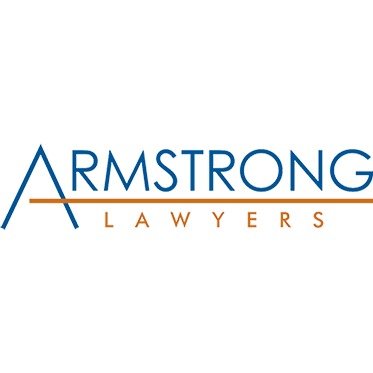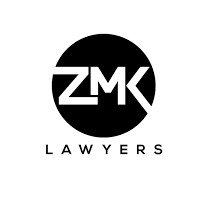Best New Business Formation Lawyers in Melbourne
Share your needs with us, get contacted by law firms.
Free. Takes 2 min.
List of the best lawyers in Melbourne, Australia
Australia New Business Formation Legal Articles
Browse our 1 legal article about New Business Formation in Australia written by expert lawyers.
- How to Start a Business in Australia: A Simple Guide and How a Lawyer Can Help
- Australia is known for its vibrant economy, supportive government policies, and high quality of life, making it an attractive destination for entrepreneurs looking to start a business. Whether you're launching a small local shop or a large-scale enterprise, Australia offers a range of opportunities for growth and success.However, starting a... Read more →
About New Business Formation Law in Melbourne, Australia
New business formation in Melbourne, Australia, involves a range of legal and administrative steps necessary to establish a new enterprise. In Melbourne, this process can include registering the business entity-either as a sole trader, partnership, company, or trust-with the Australian Securities and Investments Commission (ASIC), acquiring necessary permits or licenses, and fulfilling taxation obligations with the Australian Taxation Office (ATO). Understanding the legal framework is crucial for ensuring compliance and fostering long-term success.
Why You May Need a Lawyer
The process of forming a new business often requires legal expertise due to its complexity and the need for compliance with various laws and regulations. Here are some scenarios where seeking a lawyer's assistance might be beneficial:
- Determining the most suitable business structure that aligns with your goals and limits personal liability.
- Drafting and reviewing contracts and shareholder agreements to protect your business interests.
- Negotiating lease agreements for commercial premises.
- Understanding and fulfilling regulatory compliance requirements specific to your industry.
- Handling intellectual property issues, such as trademark registration.
- Preventing or resolving disputes among partners, shareholders, or clients.
Local Laws Overview
Several key local laws impact new business formation in Melbourne:
- Business Registration: Businesses must register their trading name and structure with ASIC, and obtain an Australian Business Number (ABN).
- Licensing and Permits: Depending on the nature of the business, specific licenses or permits may be required, which can vary significantly across industries and local councils within Melbourne.
- Taxation: Compliance with federal taxation laws, including Goods and Services Tax (GST) registration, and understanding payroll obligations are essential.
- Employment Regulations: Adhering to the Fair Work Act and understanding employer obligations, such as minimum wage and workplace health and safety, is vital.
- Consumer Law: Complying with the Australian Consumer Law, particularly regarding fair trading practices, ensures consumer protection and prevents legal issues.
Frequently Asked Questions
What is the first step in starting a business in Melbourne?
The first step is deciding on a business structure and registering your business with ASIC. Acquiring an ABN is also a crucial step in the process.
Do I need a license to start a business in Melbourne?
It depends on the type of business you are starting. Some businesses require specific local, state, or federal licenses. Check with your local council and industry associations.
How does a sole trader differ from a company?
A sole trader operates individually and is personally liable for the business debts. A company is a separate legal entity that limits the liability of its shareholders.
What tax obligations will I have?
Your tax obligations can include income tax, GST, and more. It's important to register for GST if your business turnover exceeds the threshold amount or if you wish to claim GST credits.
How do I register a business name?
You can register a business name through the ASIC website. Ensure the name is unique and not similar to existing names or trademarks.
What is a partnership agreement?
A partnership agreement outlines the terms and conditions under which a partnership business will operate, including the roles, responsibilities, and profits sharing among partners.
Do I need a lawyer to draft my business contracts?
While it's not mandatory, having a lawyer draft or review contracts can help avoid potential legal disputes and ensure all terms are favorable and legally sound.
How can I protect my business’s intellectual property?
Consider registering trademarks, patents, or copyrights, as applicable, to protect your branding, inventions, and creative works legally.
What should a business plan include?
A business plan should include an executive summary, a company description, market analysis, marketing strategy, financial projections, and an operational plan.
Is there any government support for new businesses?
Yes, several government programs and grants are available to support new businesses, particularly in innovation-focused areas. Check Business Victoria for guidance and opportunities.
Additional Resources
Consider reaching out to the following resources for additional assistance:
- Business Victoria: Provides advice, templates, and government grant information.
- Australian Securities and Investments Commission (ASIC): For business registration and regulatory compliance.
- Australian Taxation Office (ATO): For tax-related queries and GST registration.
- Fair Work Ombudsman: Offers guidance on employment laws and requirements.
Next Steps
If you need legal assistance with new business formation, consider the following steps:
- Identify specific areas where legal advice is needed, such as contracts, compliance, or dispute resolution.
- Seek recommendations for reputable commercial lawyers in Melbourne specializing in business formation and advisory services.
- Prepare relevant documents and a list of questions or concerns before your consultation to make the most of your time with a lawyer.
- Explore available legal resources and consultations that may be offered by business support centers or local chambers of commerce.
Lawzana helps you find the best lawyers and law firms in Melbourne through a curated and pre-screened list of qualified legal professionals. Our platform offers rankings and detailed profiles of attorneys and law firms, allowing you to compare based on practice areas, including New Business Formation, experience, and client feedback.
Each profile includes a description of the firm's areas of practice, client reviews, team members and partners, year of establishment, spoken languages, office locations, contact information, social media presence, and any published articles or resources. Most firms on our platform speak English and are experienced in both local and international legal matters.
Get a quote from top-rated law firms in Melbourne, Australia — quickly, securely, and without unnecessary hassle.
Disclaimer:
The information provided on this page is for general informational purposes only and does not constitute legal advice. While we strive to ensure the accuracy and relevance of the content, legal information may change over time, and interpretations of the law can vary. You should always consult with a qualified legal professional for advice specific to your situation.
We disclaim all liability for actions taken or not taken based on the content of this page. If you believe any information is incorrect or outdated, please contact us, and we will review and update it where appropriate.

















